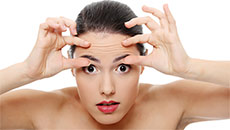If you are in a creative profession, Parkinson's may be a blessing in disguise as researchers have found that patients of the nerve cells disease in the area of brain are more creative than their healthy peers.
Those Parkinson's patients taking higher doses of medication are more artistic than their less-medicated counterparts, the study added.
"It began with my observation that Parkinson's patients have a special interest in art and have creative hobbies incompatible with their physical limitations," said Rivka Inzelberg, professor at Tel Aviv University in Israel.
For the study, the researchers conducted tests on 27 Parkinson's patients treated with anti-Parkinson's drugs and 27 age and education-matched healthy controls.
The tests included the Verbal Fluency exam, in which a person is asked to mention as many different words beginning with a certain letter and in a certain category (fruit, for example) as possible.
The participants were then asked to undergo a more challenging Remote Association Test, in which they had to name a fourth word (following three given words) within a fixed context.
The groups also took the Tel Aviv University Creativity Test, which tested their interpretation of abstract images and assessed the imagination inherent in answers to questions like "What can you do with sandals?"
The final exam was a version of the Test for a Novel Metaphor, adapted specifically for the study.
Throughout the testing, Parkinson's patients offered more original answers and more thoughtful interpretations than their healthier counterparts.
In order to rule out the possibility that the creative process evident in the hobbies of patients was linked to obsessive compulsions like gambling and hoarding, to which many Parkinson's patients fall prey, participants were also asked to fill out an extensive questionnaire.
An analysis indicated no correlation between compulsive behaviour and elevated creativity.
The study appeared in the journal Annals of Neurology.




